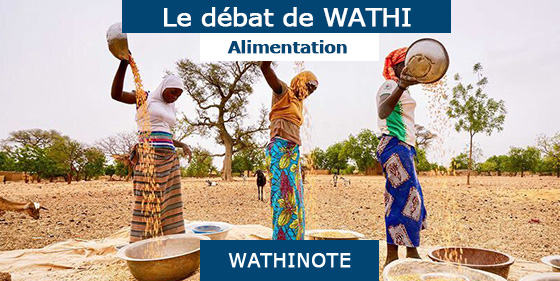

Author: Feike Sijbesma
Site of publication: The Guardian
Type of publication: Article
Date of publication: July 15, 2019
Billions are spent on humanitarian aid, yet nearly 60 million children across Africa go to bed hungry.
Efforts to alleviate the constant cycle of droughts, poverty and war have caused new problems. The biggest of these is a crippling dependency on food aid that is undermining much of the continent’s efforts to feed itself.
UN figures show that more than 250 million people in Africa one in five are undernourished, making them vulnerable to disease, deficiencies and developmental stunting that stops them reaching their full potential. It has to change.
Richer donor countries need to show they are serious about helping to eradicate malnutrition and hunger by ripping off the bandage of food aid. This sounds counterintuitive, but donors need to invest in agriculture and local food manufacturing instead so that African countries can become self-sufficient. But this requires a bold new approach funded by public-private investment.
Efforts to alleviate the constant cycle of droughts, poverty and war have caused new problems. The biggest of these is a crippling dependency on food aid that is undermining much of the continent’s efforts to feed itself
Local food projects exist, but few are capable of scale. The answer lies in initiatives such as Africa Improved Foods (AIF). Started two years ago in Rwanda, it is the first big public-private partnership in Africa to specifically address malnutrition and hidden hunger.
In one year of operation, and with an investment of only $70m (£55m), it has already helped more than two million people to avert malnutrition. AIF purchases locally grown maize and other crops from more than 24,000 smallholder farmers mostly women at set prices that guarantee a predictable income for them. These crops are locally processed in a factory in Kigali, where a nutritious “super cereal” is produced for mothers and young kids in the region.
Can we put a price on eradicating hunger? Based on the AIF(International Finance Corporation of the World Bank Group) example, it could cost as little as $5bn. To put this in context, official aid to Africa was $29bn in 2017, according to the Organisation for Economic Co-operation and Development. Yet hunger is once again rising, wiping out almost a decade of progress. Millions remain in poverty and their prospects are poor.
Importing staple foods into the continent when 60% of the population still lives on the land is madness by any measure. We can do better. It is time for a new approach, one that creates locally produced food for a local population.
Richer donor countries need to show they are serious about helping to eradicate malnutrition and hunger by ripping off the bandage of food aid. This sounds counterintuitive, but donors need to invest in agriculture and local food manufacturing instead so that African countries can become self-sufficient. But this requires a bold new approach funded by public-private investment
This is not about the world saving Africa. Real and profitable business opportunities exist, all the way along the supply chain from farmers to the market. Investing in Africa’s food security is socially responsible, too. Governments must also play their part, committing to sourcing food locally and reducing costly imports.
Famines grab headlines, but malnutrition robs children of their future. It has irreversible effects. If children don’t get the right nutrients and vitamins early in the first 1,000 days of life, their brain development is impaired and they grow up stunted – shorter, weaker and with learning difficulties that severely limit their potential as adults.
Food aid does not help fight malnutrition because the bulk of it comprises calorie-rich but nutrient-light carbohydrates such as maize meal. It doesn’t prevent stunting or other serious health issues such as anaemia. It can even make countries poorer because ill people cannot work and need more health care. According to the Global Nutrition Report, better nutrition could deliver at least $16 for every $1 invested in the local economy, simply by improving general health.
Food security in Africa is an achievable goal. Private companies need to step forward to invest in that brighter future. Together with local farmers and governments, we can eradicate hunger in Africa.
Les Wathinotes sont soit des résumés de publications sélectionnées par WATHI, conformes aux résumés originaux, soit des versions modifiées des résumés originaux, soit des extraits choisis par WATHI compte tenu de leur pertinence par rapport au thème du Débat. Lorsque les publications et leurs résumés ne sont disponibles qu’en français ou en anglais, WATHI se charge de la traduction des extraits choisis dans l’autre langue. Toutes les Wathinotes renvoient aux publications originales et intégrales qui ne sont pas hébergées par le site de WATHI, et sont destinées à promouvoir la lecture de ces documents, fruit du travail de recherche d’universitaires et d’experts.
The Wathinotes are either original abstracts of publications selected by WATHI, modified original summaries or publication quotes selected for their relevance for the theme of the Debate. When publications and abstracts are only available either in French or in English, the translation is done by WATHI. All the Wathinotes link to the original and integral publications that are not hosted on the WATHI website. WATHI participates to the promotion of these documents that have been written by university professors and experts
